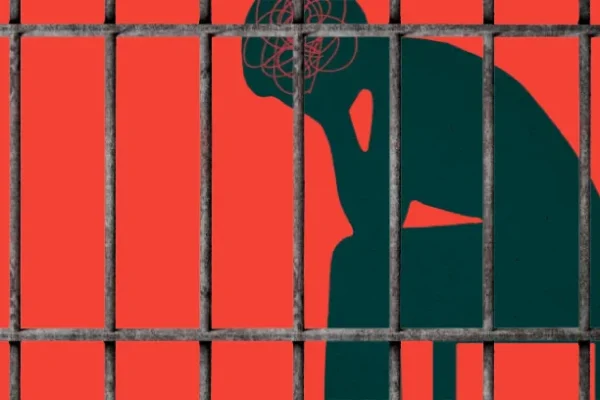
Mental health plays a crucial role in influencing criminal behavior, uncovering deep rooted issues, and shaping effective prevention strategies. This topic is important because it highlights the effects of mental health on crime. Understanding this can let individuals get the help they need. Many believe that mental health plays a leading role in criminal behavior. However, mental health is not the only factor in crime. Other influences, such as substance abuse and environmental factors also play a significant role in criminal behavior. There are many factors that contribute to crime, and mental health can be one of them. Nonetheless, mental health is not the main element. It is crucial to understand the connection between mental health and crime, the importance of timely support and care, and the impact of negative stereotypes related to mental health on criminal behavior.
There are many mental illnesses that can contribute to violence such as schizophrenia and bipolar disorder. (Thornicroft) According to psychologist journalist Tori DeAngelis, “…people with serious mental illness- are somewhat more likely than members of the general public to commit acts of violence…” (DeAngelis) This highlights the misconception that mental illness leads to violent behavior, while those with mental illnesses are more often at risk of becoming victims themselves. Therefore, it is crucial to understand the connection between mental well-being and crime.
Addressing mental health issues early on is key to preventing the escalation of behaviors that can lead to crime. Connected Families NH, a respected organization, states, “Early intervention plays a vital role in preventing the escalation of mental health issues.” (Staff) When mental health problems are addressed before they worsen, individuals are less likely to engage in criminal behavior. Research has shown that untreated mental health issues can contribute to impulsive or aggressive actions, increasing the risk of crime. By focusing on early support, society can reduce these risks and promote safer, healthier communities. Having established the role of early intervention in preventing crime, it is equally important to examine how societal stigma surrounding mental health can tear down these efforts.
The stigma surrounding mental health significantly prevents individuals from seeking help, ultimately increasing the risk of criminal behavior. Labels such as ‘dangerous’ or ‘unstable’ reinforce negative stereotypes, often shifting people from reaching out for the support they deserve. According to Better Health, misconceptions against mental health issues can lead to humiliation, sorrow, and seclusion. (Health) When people with mental health issues feel judged or shamed by society, they are less likely to seek the help they need. According to the U.S Department of Justice, “…serial murder is often a crime of passion involving the release of repressed emotions.” (Hale) This suggests that, without sufficient mental health support, individuals struggling with repressed emotions may act impulsively. This emphasizes the true impact of negative views on mental health. Not only does a negative perception of mental health create negative feelings, but it can evolve into more serious actions such as self-hatred or criminal behavior. This attitude around mental health steers many away from getting the help they need which worsens mental health and discourages help.

In conclusion, there has always been a complex relationship between mental wellness and its impact of violence. While mental health is a factor to violence and crime it is not the key factor. Understanding the link to mental issues and crime is essential because it emphasizes how untreated mental illnesses can take part in criminal behavior, specifically when individuals lack support. Recognizing these connections allows us to prioritize initial involvement and treatment, which can prevent the severity of behaviors that lead to violence. Mental health stigma significantly impacts criminal behavior. When individuals feel ashamed, they are less likely to seek help, which can worsen their conditions. By creating a deeper understanding of mental health’s role in criminal behavior and breaking down the dishonor surrounding mental health, we can create a society that prioritizes compassion, early interference, and support systems, which will lead to safer and more inclusive communities. As we continue to better understand the role of mental health, we must commit to disregarding stigma and developing support. With increased awareness and empathy, society can pave the way for meaningful change.






